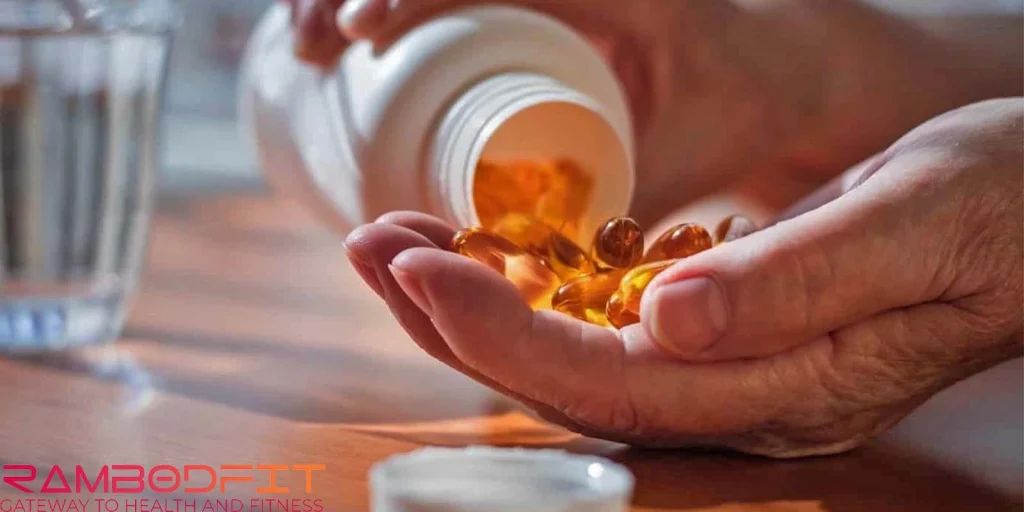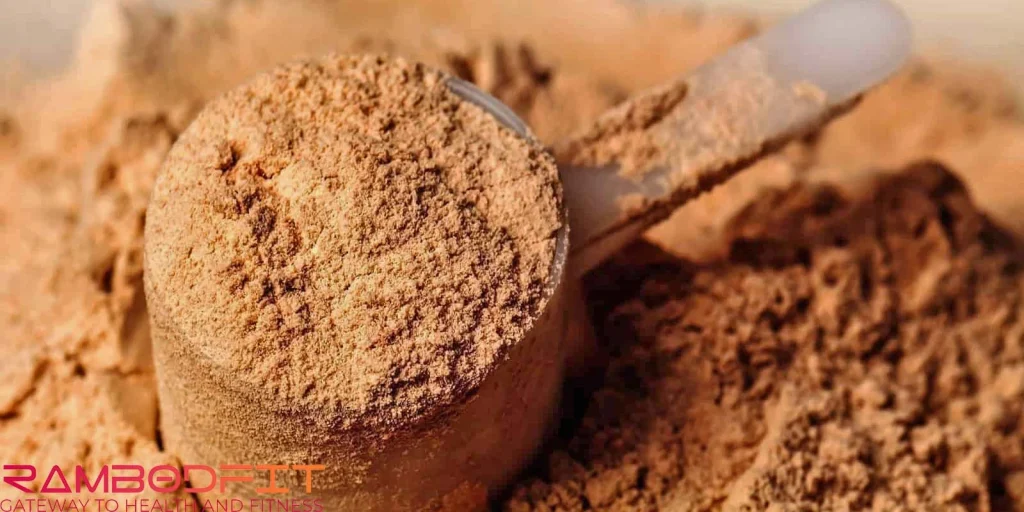


You focus on eating fresh foods. You prioritize vegetables. You stay hydrated like a pro. Still, here’s the reality: even the most balanced and wholesome diets can miss a few crucial nutrients.
Why? Farming methods today contribute to nutrient loss in soil, the way foods are stored for long periods, and the stress of daily life all reduce how much your body takes in.
This article isn’t an excuse to give up on your salad. Think of it as a wake-up call instead. It focuses on key supplements that food can’t provide while explaining why they’re essential for things like energy, immunity, brain function, and staying healthy long-term.
At Rambodfit, let’s look at what your body craves and where your diet might fall short, and explore supplements that food can’t provide.
Table of Contents

Here in this article, we focus on the top 6 essential supplements that food can’t provide alone, and how to consume them properly, and all the major and minor details related to them.
Remember that all these minerals and supplements that food can’t provide may help you perform better in the gym while exercising, but only if you have a proper diet and training plan. There is no magic in this, and you have to be patient with results.
Why It’s Important:
Vitamin D does more than keep your bones strong. It acts like a hormone and plays a role in over 1,000 genetic processes. It has an influence on your immune system, helps manage mood (goodbye, winter blues), and aids in calcium uptake and keeping your muscles functioning.
Where to Get It:
You’ll find it in foods like salmon, sardines, mackerel, beef liver, and milk that’s fortified, including plant-based ones. But unless you’re soaking up the sun year-round by the coast, you don’t get enough.
The Facts:
As much as 90% of individuals face low vitamin D levels during winter, and even in sunnier weather, around 70% still lack enough. Spending time indoors, using sunscreen, and staying in northern regions stops your body from making vitamin D from UVB sunlight.
Pro Tip:
Eat your vitamin D with food that includes good fats to absorb it better. Though some combine it with K2 to assist bones, good fats play the bigger role in making it work.
Why It Matters:
People often associate creatine with boosting athletic performance, but it helps in other ways, too. It improves brain function, energy production, DNA repair through methylation, and keeps the nervous system strong. These benefits are noticeable in older people and vegetarians.
Natural Sources:
You can find creatine in red meat and fish. Yet 500 grams of red meat provides 1 gram of creatine. This amount falls short of the suggested 3 to 5 grams that support both mental sharpness and physical performance.
Key Benefits:
Pro Tip:
Go with creatine monohydrate, which is the form that has been researched the most and is easiest for your body to use. Pair it up with carbs (such as juice or a banana) to boost insulin and help it absorb better into muscles.

Why They Matter:
Omega-3s play a big role in keeping the heart healthy, helping brain growth, improving joint movement, and aiding muscles after exercise. EPA (eicosapentaenoic acid) and DHA (docosahexaenoic acid) help control inflammation in the body, keep cells flexible, and support communication between nerves.
Natural Sources:
Fish like salmon, sardines, and anchovies supply a lot of omega-3s. Seeds like flax and chia give ALA, a type of omega-3 that doesn’t convert well into EPA or DHA in the body (about 5% turns into EPA, and less than 1% becomes DHA).
Daily Needs vs. Real Intake:
Experts suggest taking 250 to 500 mg of combined EPA and DHA every day, but most people eating a Western-style diet get much less than this.
Pro Tip:
Choose fish oil that is tested by third parties. Make sure each serving gives at least 250 mg of EPA and 250 mg of DHA. Vegans can use algae-based omega-3s instead.
To Read More:
Why It’s Important:
Vitamin B12 helps form red blood cells, supports the nervous system, and plays a role in creating DNA. A lack of it may go unnoticed and cause tiredness, memory issues, or permanent nerve problems.
Natural Sources:
Found in animal-based foods like meat, eggs, and dairy. People who follow vegetarian or vegan diets face a much higher risk of deficiency.
Hidden Risks:
As people age, their stomach acid levels drop, which reduces absorption. Even meat-eaters may struggle with this, so older adults face an added risk.
Pro Tip:
Pick methylcobalamin or hydroxycobalamin forms since they are absorbed better. If you’re over 50 or vegan, taking regular supplements isn’t optional.
Why It’s Important:
Magnesium plays a key role in over 300 enzyme-driven processes in the body. These include managing nerve signals, maintaining muscle movement, regulating blood sugar, and making energy. Modern farming and food processing often remove magnesium from our diets.
Where to Get It Naturally:
You can find magnesium in foods like leafy green veggies, nuts, seeds, and legumes. However, your body might not absorb it well because of compounds like oxalates and phytates in these foods.
Signs You Might Be Low on Magnesium:
Pro Tips:
Why You Need It:
Zinc supports your body’s defenses, keeps hormones (like testosterone) in check, helps wounds close up quicker, and even lets you taste food. Grains and legumes with phytates can make it harder for your body to absorb.
Where to Get It:
You can find zinc in seafood like shellfish, meats such as beef and chicken, and in pumpkin seeds.
Who Might Lack It:
Vegans and vegetarians often miss out. People with gut problems or those who sweat a lot from intense workouts may also lose more zinc.
Pro Tip:
Take zinc without food, but keep it away from calcium since calcium can block how well zinc gets absorbed. Zinc forms like picolinate or gluconate work better in the body.
To Learn More:
Let’s get smart about personalizing supplements. Adjust your choices based on your life stage or activity:
Athletes
Vegans and Vegetarians
To Support Adults Beyond 50
To Aid Women After Pregnancy

The takeaway: eating clean is a great starting point, but it’s not the whole picture. Supplements that food can’t provide may be helpful if consumed properly.
Even the most dedicated fitness fans and healthy eaters deal with nutrient gaps that regular food won’t cover. Supplements that food can’t provide don’t act like a shortcut—they serve as a smart tool in today’s approach to health, supported by science, and becoming more essential in modern living.
To feel energized, age well, and perform at your best, it’s about more than your meals—it’s about giving extra support to your body with specific, science-based supplements that food can’t provide.
Spend on your health. Optimization isn’t just a temporary trend—it’s a way of life.
Check these articles about supplements and minerals:
Multivitamins provide general support, but their doses are often either too small or unbalanced. Using specific supplements makes sure your body gets the right nutrients in proper amounts and forms that are easier to absorb.
Yes, you should. Knowing your health data is very useful. Blood tests can show your specific deficiencies and guide you to adjust your supplements.
Most countries only regulate supplements. Pick brands that have third-party testing like NSF or Informed-Sport. Also, look for those that are clear about their ingredients and dosages. Make sure that supplements that food can’t provide are ligal and safe.